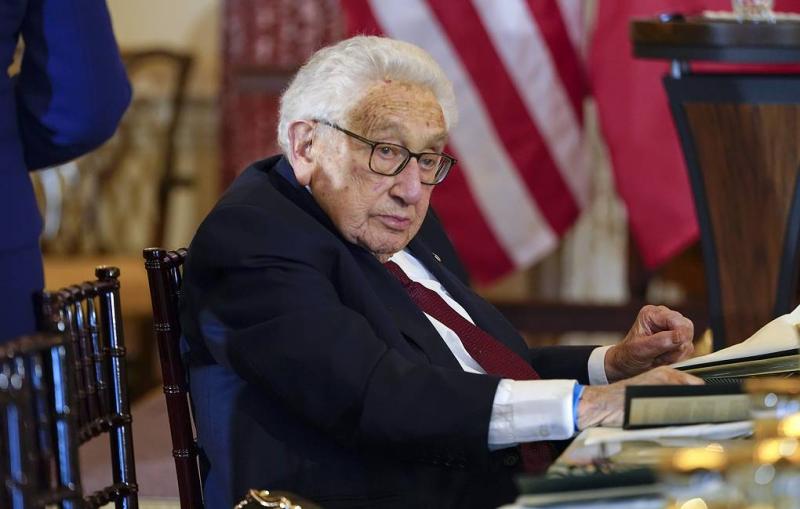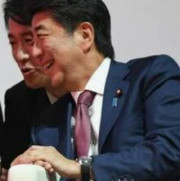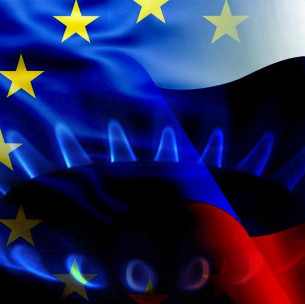
© AP Photo/Jacquelyn Martin/ TASS
Last Saturday, May 27, former National Security Adviser and US Secretary of State Henry Alfred Kissinger celebrated his birth centenary. Diplomat, intelligence officer, Ph.D. in Political Science, Nobel Peace Prize winner, recognized patriarch of international relations, a man who set the vector of Washington's foreign policy during the Cold War for many a year.
Few of the world’s major politicians and statesmen managed to turn 100, while remaining sane and functional. Yes, Kissinger has been tight of hearing lately, gone blind in one eye and undergone several heart surgeries, but he still works 15 hours a day. He has been interviewed by reputable world media and spoken publicly, including at prestigious international forums. Henry Kissinger is undoubtedly hard-core loyal to Anglo-Saxon domination, though not a classic hawk but a kind of "prudent" political "predator" who does not attack anyone without reason. This is what apparently makes many politicians heed to Kissinger's viewpoint.
Heinz Alfred Kissing[g]er was born on May 27, 1923 to a family of orthodox Jews in the city of Fürth, Bavaria. His father Louis Kissinger was a schoolteacher, and his mother Paula Kissinger (nee Stern), was the daughter of a successful cattle dealer. After the National Socialists came to power in Germany in 1933, the family started seeking opportunities to emigrate. In 1938, they managed to leave for the United States. Shortly after moving to New York, Heinz began calling himself Henry, and his last name became American-style — Kissing[dʒ]er.
In 1943, Henry got US citizenship and was called up for military service. Next year they sent him to Europe, where he served until 1946, doing counterintelligence and intelligence work as part of the US Armed Forces’ European Command. Demobilized as a captain, Kissinger returned to America and owing to benefits for retired servicemen entered the prestigious Harvard University, which he graduated in 1952 from. Back then, he already embraced tough anti-Soviet, and later anti-Russian stances which he has been abiding to this day. Henry Kissinger's political career began after graduating from Harvard and getting his doctorship in 1954.
Interestingly, during the period of close cooperation with Republican Nelson Rockefeller, whom he knew from his student days, Kissinger simultaneously collaborated with Democratic presidents’ administrations. On February 27, 1961, he was appointed part-time consultant on "national security issues" by President John F. Kennedy. Later, Kissinger worked informally with President Lyndon B. Johnson, whom he gave professional advice on European problems, the German issue, and later the situation in Vietnam.
On November 25, 1968, presidential election winner Richard Nixon suggested that Henry Kissinger take up the post of his future administration’s national security adviser. After a week-long cogitative pause, Kissinger answered in the affirmative and took office on January 20 next year, which he held until November 3, 1975. Notably, September 22, 1973 saw his appointment as US Secretary of State to stay in office until January 20, 1977. No one before and after him did serve in these two positions simultaneously in America.
More articles and books have been written about what Henry Kissinger did during his stay in the White House under Presidents Richard Nixon and Gerald Ford than he wrote himself. Moreover, depending on the authors’ political preferences, the assessments of his personality range from the "guru of world diplomacy" and the "patriarch of geopolitics" ("Dr. Peace") to the "opportunist" and "a figure less influential than commonly believed" ("Dr. Evil"). However, the fact remains that Kissinger was and is a supporter of a real policy based on practical, not ideological or moral considerations.
What did Kissinger's real policy yield to the United States and the world? Let's just try to list the key foreign policy events under Nixon and Ford, which Kissinger was directly engaged in and which he is credited or blamed for. Henry Kissinger normalized US relations with communist China after a nearly 25-year break. Largely thanks to his efforts, President Nixon visited that country in February 1972 and met with CPC head Mao Zedong. Moreover, on October 25, 1971, Taiwan was excluded from the UN, and China took its place. The United States did not oppose it, although Taipei had been their ally before.
No doubt that Dr. Kissinger was one of the detente architects to weaken confrontation between capitalist and socialist countries and expand Moscow's cooperation with the West. Thus, 1969 witnessed negotiations between the USSR and the USA to limit strategic offensive arms kick off in Helsinki; and in May 1972, President Nixon visited the Soviet Union to become the first American president to do so. His visit yielded the Anti-Ballistic Missile Treaty (ABM Treaty or ABMT), an Interim Agreement Between the USA and the USSR on Certain Measures with Respect to the Limitation of Strategic Offensive Arms and other bilateral documents. In 1975, 35 states, including the Soviet Union and other socialist countries, signed the Helsinki Final Act, which became a major milestone in international affairs.
And on January 27, 1973, the Agreement on Ending the War and Restoring Peace in Vietnam was signed in the French capital to end the war for the United States. The same year saw heads of the US and North Vietnamese delegations Henry Kissinger and Le Duc Tho earn the Nobel Peace Prize, having caused a lot of controversy. The Vietnamese, by the way, refused the award, saying that “peace has not yet really been established in Vietnam.”
On the other hand, Kissinger personally approved plans to bomb Cambodia in 1969-1970, keeping this from the US Congress and press. Various estimates suggest a death toll accounting for 150,000 to 500,000 people. This fact is sometimes referred to as a "black spot" in Kissinger's career. Just a reminder: that country’s anti-American sentiment entailed the coming to power of the Khmer Rouge, who committed a genocide during their rule in 1975-1979, killing 1.7 to 3 million people.
"Peacemaker" Kissinger is also believed to have played a certain part in overthrowing Salvador Allende’s legitimate government of Chile in September 1973. After the Yom Kippur War (October 6 to 23) the same year, Kissinger's "shuttle diplomacy" (he moved between Israel, Egypt and Syria to meet with their leaders) caused the Arab-Israeli conflict settlement negotiations to end up with two agreements on the separation of Israeli and Egyptian troops in the Sinai Peninsula.
To make the long story short, in the 1960s and 70s, not a single major US foreign policy step occurred without Henry Kissinger as its mastermind. And today, despite his age, he is still one of the prime movers, though not as active as before…









